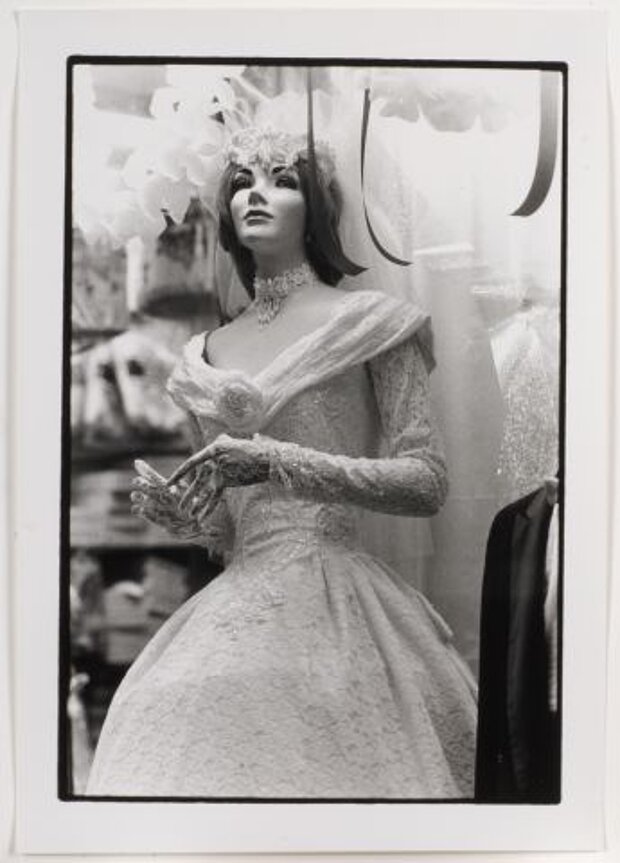
Leonard, Zoe
Bride with Broken Fingers (no. 2)
1995 - 1997

© mumok
| Object description | Gelatin silver print |
|---|---|
| Object category | sculpture |
| Dimensions |
Objekt:
height: 45 cm,
width: 42,6 cm,
height: 40,8 cm,
width: 28,5 cm
|
| Year of acquisition | 2008 |
| Inventory number | ÖL-Stg 421/0 |
| Creditline | mumok - Museum moderner Kunst Stiftung Ludwig Wien, Leihgabe der Österreichischen Ludwig-Stiftung |
| Rights reference | Leonard, Zoe |
| Further information about the person | Leonard, Zoe [GND] | Leonard, Zoe [ULAN] |
| Literature | Museum der Wünsche |
Zoe Leonard’s photographs allow us to take notice of the inconspicuous details and contradictions of our everyday life. They show the subtle tension between Nature and Culture, the living and the fading, local and global. It may be this focus on the overlooked detail that makes Leonard’s monochrome photographs so fascinating. In an interview, she says, “I just wish that people look at things, together with me.” Her analogue photographs discuss photography itself as a media. Her photographs are not traditionally elaborated; they are neither cropped nor retouched. The negative film’s black edges constitute an integral part of the photograph’s expressive character. Stains, dust, and scratches on the negative, all remain just as they are. Thus, Leonard displays the very genesis of photographs, and points to their historicity. Usually, the places that Zoe Leonard chooses to photograph are familiar to her. Her works originate outdoors, in the city streets, in exhibitions or wherever else objects are on display – which includes natural science museums, art museums, and galleries, but also showcases and shop windows, just as well. „Bride with broken Fingers“ is an example for those shop window objects, that, for Leonard, captures not just consumerist culture, but the inherent societal role models and their ongoing transformation. At the very first glance, it seems to show a bride, a woman fulfilling the role society traditionally assigned to her, claiming it to be ideal and the “happiest day in a woman’s life”. Only at a second glance do we recognize the bride as a mannequin, and a damaged mannequin at that – her fingers are strangely broken, deformed. Thus collapses the beholder’s ideal image of the beautiful bride.
© mumok – museum moderner kunst stiftung ludwig wien